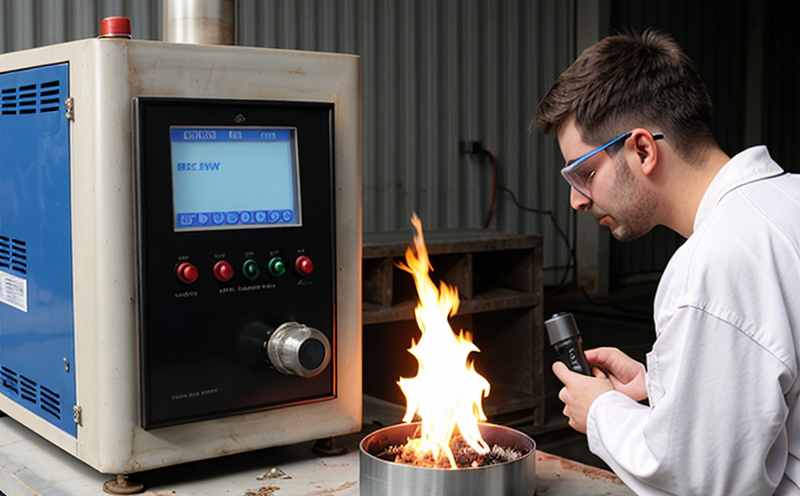ISO 13256 Heat Pump Heat Transfer Verification
The ISO 13256 standard is a cornerstone in the HVAC sector, particularly for heat pump manufacturers and system integrators. This international standard provides a method to verify the thermal performance of heat pumps, ensuring they meet energy efficiency targets set by regulatory bodies worldwide.
Heat pumps are critical components in modern heating systems, designed to transfer heat from one medium (typically outdoor air) to another (indoor space). The verification process outlined in ISO 13256 focuses on the heat pump’s ability to absorb and deliver thermal energy efficiently. This is achieved through a series of tests that simulate real-world operating conditions under controlled laboratory settings.
The standard specifies detailed procedures for testing, including the use of specific apparatus such as calorimeters, temperature sensors, and flow meters. The primary objective is to measure the heat pump’s COP (Coefficient of Performance) at various operating points, ensuring compliance with energy efficiency standards like ASHRAE 210.
The process begins with careful calibration of all test equipment. Specimens are prepared by assembling a heat pump into a standard test setup that mimics real-life installation configurations. This ensures accurate measurement under conditions similar to those encountered in the field. Temperature, pressure, and flow rate data are recorded continuously during testing.
The testing protocol involves subjecting the heat pump to a range of temperatures and load conditions, simulating typical seasonal variations and usage patterns. The performance is evaluated based on parameters such as refrigerant charge, evaporator and condenser thermal resistance, and overall system efficiency. Compliance with ISO 13256 ensures that manufacturers can confidently market their products as meeting the highest international standards for energy efficiency.
Given the complexity of heat pump systems, compliance testing is crucial not only for regulatory adherence but also to enhance brand reputation. Customers trust brands that demonstrate consistent performance and reliability. ISO 13256 verification serves as a benchmark that assures stakeholders the product meets or exceeds expectations in terms of energy efficiency.
The standard's rigorous procedures ensure that heat pumps are reliable, efficient, and environmentally friendly. Compliance with this standard not only opens doors to international markets but also enhances customer satisfaction by delivering products that perform consistently across different climates and usage scenarios.
Customer Impact and Satisfaction
By adhering to the ISO 13256 standard for heat pump heat transfer verification, customers benefit significantly in terms of product performance and reliability. Compliance with this international standard ensures that heat pumps meet or exceed energy efficiency targets set by regulatory bodies globally.
Manufacturers who comply with ISO 13256 not only enhance their brand reputation but also build trust among consumers. The verification process ensures that the products are reliable, efficient, and environmentally friendly. This is crucial for HVAC manufacturers aiming to meet increasing demand from eco-conscious customers.
The standard's rigorous procedures guarantee consistent performance across different climates and usage scenarios, leading to higher customer satisfaction. Customers can expect heat pumps that perform optimally under various conditions, ensuring energy savings and reduced environmental impact.
Competitive Advantage and Market Impact
The ISO 13256 standard provides a competitive edge for HVAC manufacturers by offering a benchmark for performance and reliability. Compliance with this international standard not only ensures regulatory compliance but also enhances brand reputation, attracting eco-conscious customers.
Manufacturers that comply with ISO 13256 demonstrate their commitment to quality and sustainability, which is increasingly important in the global market. This can lead to increased market share as consumers prefer brands known for producing reliable and energy-efficient products.
The standard's rigorous testing procedures ensure consistent performance across different climates and usage scenarios. This consistency not only enhances customer satisfaction but also helps manufacturers differentiate their products from competitors, offering a clear advantage in the competitive HVAC sector.
Use Cases and Application Examples
- Residential Applications: ISO 13256 verification ensures that heat pumps installed in residential settings meet energy efficiency standards, leading to lower operational costs for homeowners.
- Commercial Buildings: Compliance with this standard is essential for large-scale HVAC systems in commercial buildings, ensuring optimal performance and reducing environmental impact.
- Solar-Enhanced Heat Pumps: The standard can also be applied to verify the efficiency of solar-enhanced heat pumps, integrating renewable energy sources into HVAC systems.
- Geothermal Systems: ISO 13256 can provide a framework for verifying the performance of geothermal heat pump systems, ensuring they meet high standards of efficiency and reliability.





